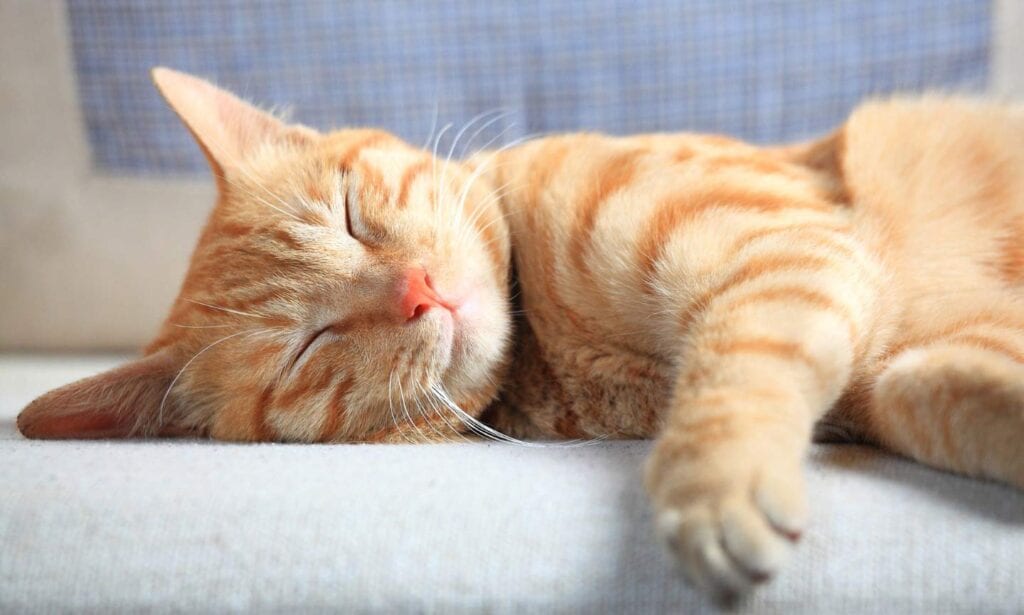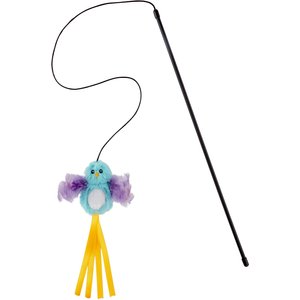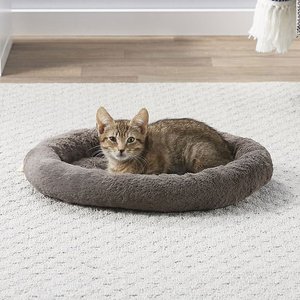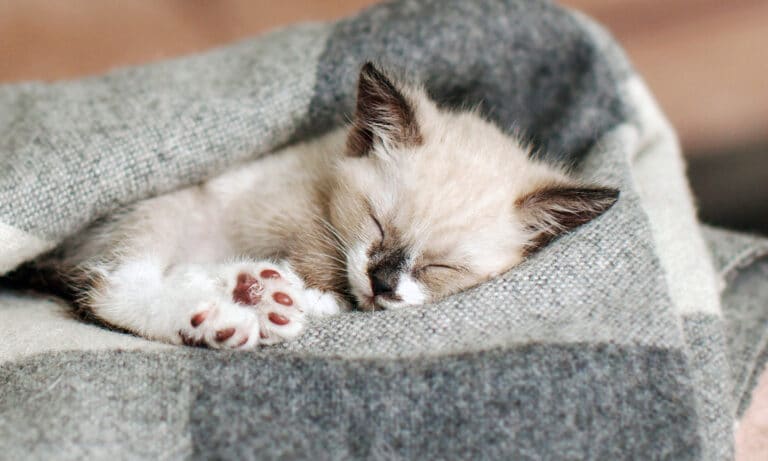It’s no secret that cats cherish their sleep—even if it means waking us up in the middle of the night as they get into bed to snuggle and lay on our chest. And no matter what time of day it is, we’re never surprised to see our kitty companion catching some quick z’s. (Hence the term “catnaps.”)
If you’ve ever wondered why your cat’s sleeping all the time, you’re not alone. We tapped veterinary experts to learn more about when it’s normal, signs that may warrant a visit to a veterinarian, and tips on how pet parents can help cats get the best sleep.
In This Guide
How Much Should Cats Sleep?
So, how much sleep do cats need? Adult cats typically sleep for an average of 12–16 hours a day, while the sleep time for kittens and senior cats can be as much as 20 hours per day.
While we humans aim to get eight hours of sleep every night and can only dream of sleeping as much as our furry companions do, cats don’t tend to sleep for long periods but rather have multiple sleep sessions (aka “catnaps”) throughout the day and in various depths of sleep.
Cats are considered to be crepuscular (as opposed to nocturnal, despite popular belief), which means they’re most active during twilight hours. And while our sleep cycles differ a bit from cats’, they can enter REM (rapid eye movement) sleep and dream, just like we do!
Of course, cats’ sleep can vary, much like ours, based on factors such as their age, diet, health, breed and environment.
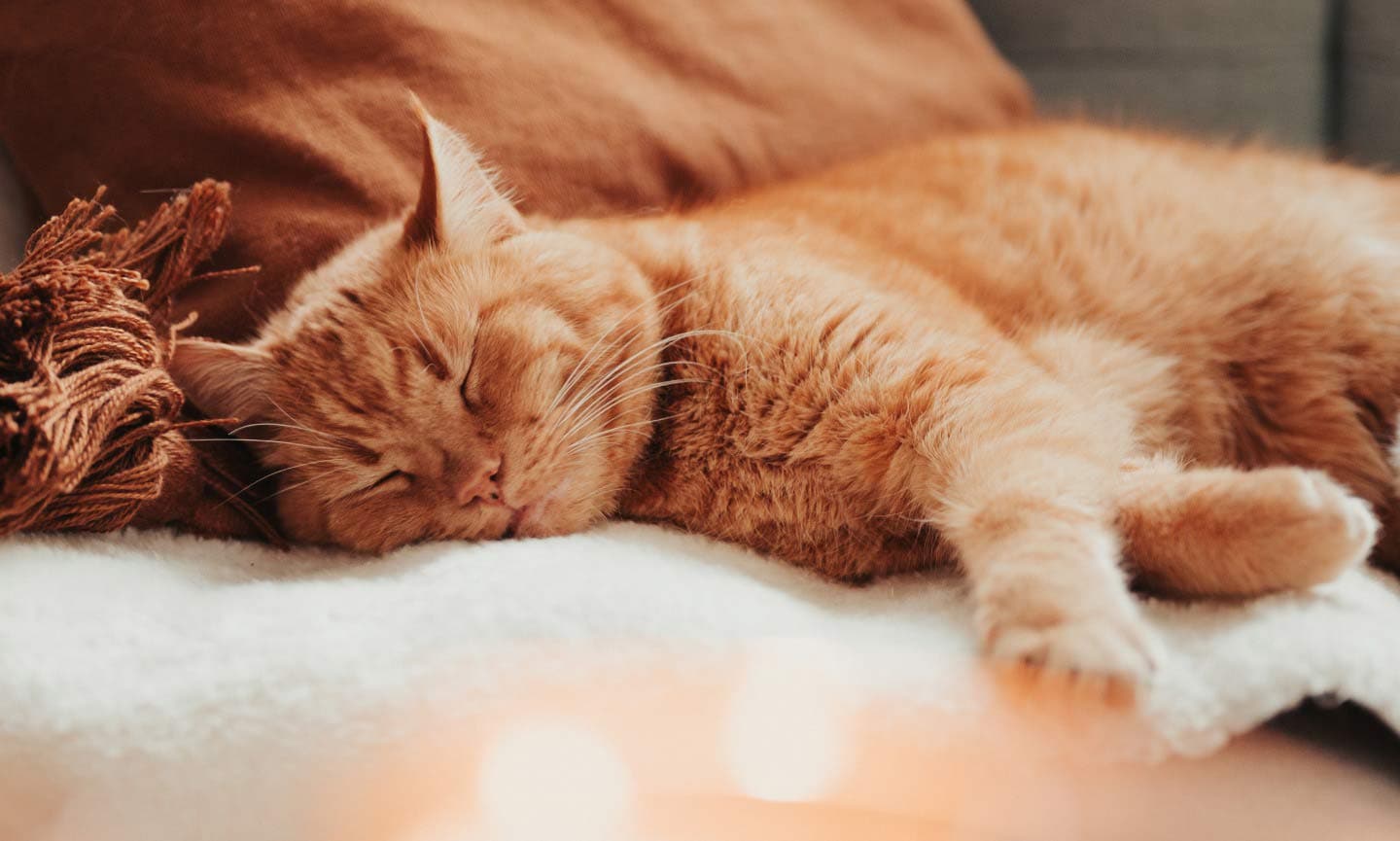
Why Do Cats Sleep So Much?
Cats can exhibit some puzzling behaviors at times, whether it’s randomly making biscuits, headbutting us or showing their belly. Their sleeping behaviors, on the other paw, can be explained.
1They instinctively sleep lightly so they can react to potential threats.
Dr. Alejandro Caos, DVM, a veterinarian with The Vets in Miami, Florida, says cats are highly sensitive to their environment. As natural predators, this behavior can be traced back to their time in the wild. He adds, “As territorial animals, they need a secure and stress-free environment to relax and sleep peacefully.”
2 They’re conserving their energy.
“Cats have a relatively high metabolic rate, and sleeping allows them to conserve energy,” Dr. Caos says. “By sleeping for extended periods, cats can recharge and be ready for short bursts of intense activity when they are awake.” (Which might explain those random zoomies!)
Prior to domestication, cats would spend a significant amount of time hunting, then conserve their energy by sleeping during the rest of the day. And even though domestic cats no longer need to hunt for their food and can get their next meal with a mere meow nowadays, they’ve retained this natural behavior.
3They feel stressed.
If you notice your feline friend sleeping more than usual, this could be a sign that they’re feeling stressed. Dr. Patrik Holmboe, DVM, and head veterinarian for Cooper Pet Care in Amsterdam, North Holland, Netherlands, says in all likelihood, stress affects cats similarly to how it does people.
Cats thrive on routine and knowing what to expect out of every day. Consequently, they can become stressed if there’s been a recent change in the home—no matter how big or small. Examples of this could be anything from altering your work schedule to simply relocating their litter box.
Additional signs of stress in cats may include:
- Hiding
- Excessive vocalization
- Accidents in the house
- Excessive grooming
- Changes in appetite
- Aggressive behavior
When you are aware of an upcoming change, try to introduce small adjustments over time to allow your cat to adapt gradually. If there haven’t been any recent changes in the household and you notice a difference in your cat’s behavior, it’s a good idea to see a vet to rule out any underlying illnesses.
4They’re bored.
“Cats, if bored, may sleep more, as they simply have nothing else to do,” Dr. Holmboe says.
Without a mouse toy to chase or ball to paw at, cats can easily get bored during their waking hours. Keeping them entertained and engaged with playtime so they can exert mental and physical energy is vital to their overall health and well-being.
Fortunately, there are countless toys and activities—such as interactive play, cat trees, leash training and games—to appeal to their natural instincts of hunting, foraging, pouncing, scratching and climbing and to keep boredom at bay.
5 They have an illness or injury.
Sick or injured cats may sleep more than usual to heal and improve their condition. To maintain optimal health, Dr. Caos says they need deep, uninterrupted sleep.
“During sleep, cats go through different sleep stages, including light sleep and deep sleep,” he explains. “Deep sleep is crucial for restorative processes, such as tissue repair, growth and strengthening the immune system.”
If your cat is showing signs of health issues or injuries, seek immediate treatment to expedite their recovery process.
6 Their crepuscular schedule makes it seem like they spend a lot of time sleeping.
“Cats are, in general, more active at dusk and dawn,” Dr. Holmboe says. “This can absolutely give the impression that they ‘sleep all day,’ as they are actually sleeping during the day!”
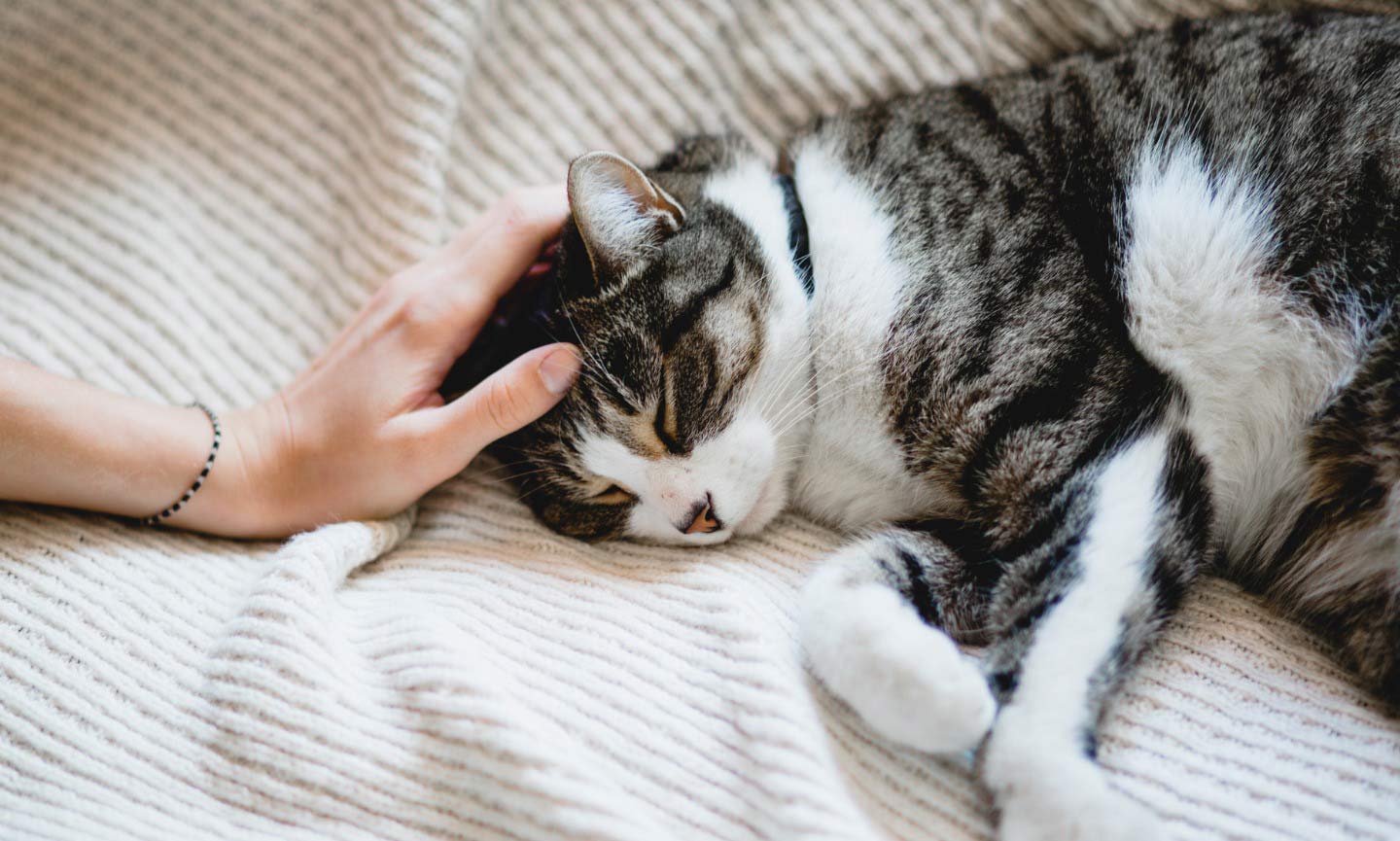
How To Help Your Cat Get the Best Sleep
Siesta. Snooze. Slumber. No matter what kind of sleep they get, younger cats and older cats alike simply love their rest.
When it comes to helping your cat get the best beauty sleep possible, Dr. Holmboe recommends:
- Providing your cat with plenty of interactive play and general mental and physical stimulation throughout the day.
- Setting up a calm and comfortable sleeping environment. “Just like a human, no pet wants a loud washing machine or constantly opening door right next to their bed,” he says.
- Establishing a consistent routine, especially since cats thrive on it. He explains, “If your pet knows that for the next few hours not much is likely to happen, they can sleep comfortably knowing they aren’t missing anything.”
When searching for the perfect cat bed, Dr. Alex Crow, MRCVS (BVETMED), a veterinary surgeon in Nottingham, U.K., suggests looking for a bed with the following features:
- Big enough for your cat to stretch out comfortably
- Made of comfy materials, whether it’s memory foam, fabric or fleece, that won’t make them too hot or too cold
- Machine washable to keep the bed clean and free of allergens
- Designed with your cat’s preferred sleeping style in mind
- Priced within your budget and suits your cat’s needs
In addition to promoting quality sleep through consistent routines and comfy beds, supplements made with melatonin, chamomile or L-theanine may also help your furry family member get sufficient sleep. However, before giving your cat any kind of supplement, it’s always best to talk to your vet to address the underlying issue.
“It's important to note that individual cats may have different sleep patterns, and factors such as age, health and activity level can influence their sleep requirements,” Dr. Caos says.
If you notice significant changes in your cat's sleep patterns, such as excessive sleepiness or difficulty waking up, talk to your vet to learn more about their health status.
You could say it’s essentially in cats’ DNA to sleep for as long and often as they do. The amount of sleep can vary depending on a cat’s age, health status, breed, activity level and environment. However, it’s also important to know your cat’s usual sleeping habits so you’ll notice if they’re oversleeping, and if they are, identify the possible cause.
Want your fluffy companion’s sleep schedule to align with yours? That way, you and your cat can peacefully snooze through the night without interruptions. Check out our tips on how to adjust your cat’s sleep schedule.
More Fun Cat Facts
Share:
